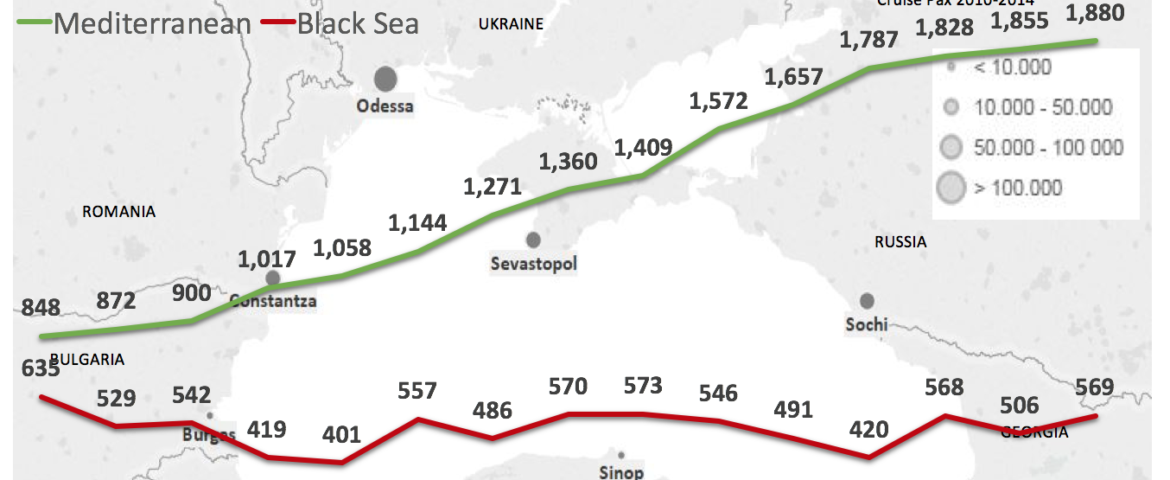By Thanos Pallis
Within the first 15 years of the 21st century cruise passenger movements in the Black See ports increased remarkably, the cruise ports in the region hosted in 2014 a total of 204.351 cruise passenger movements and 359 cruise vessel calls. Fifteen years earlier, just 55.237 cruise passenger movements were recorded at the very same ports, with the number of cruise calls standing at just 87 calls in aggregate.
The PortGrafic presents a distinctive feature of cruise development in the region: Contrary to what has happened in other regions, the size of cruise vessels has not considerably changed during the last 15 years.
On the contrary, every single year the calls that were recorded were associated with a scale of 500-650 passenger movements.
In fact, in 2014 the average number of passengers per visit stands at 569 passengers per call, whereas in 2000 the very same average was standing at 635 passengers.
Even though some caution on the potential standard deviation of every single call is needed, this trend is in contrast with the trends of cruising around the globe, and not least with the evolution of deployment partners in nearby Mediterranean Sea.
In the Mediterranean alone the average number of passengers per call increased from 848 in 2000 to 1.878 in 2014. Cruise has based its growth on the remarkable growth of vessels sizes, while the total of the global cruise fleet has remained stable. This does not hold true in the Black Sea though, where growth was based on the increase of the number of cruises offered in the region.













